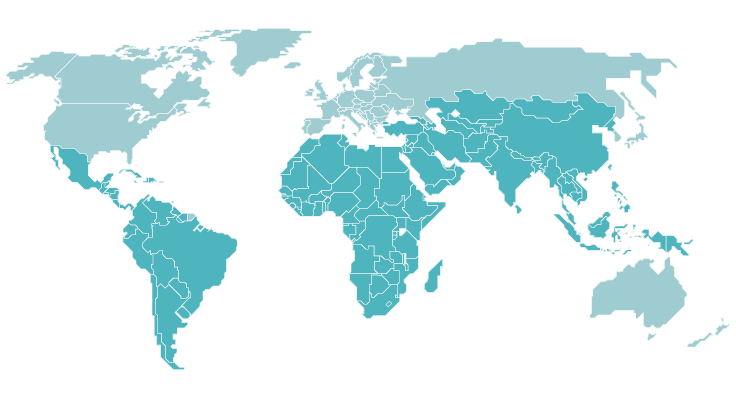
Léo Ramos Chaves/Pesquisa FAPESPThe Anthropocene defines the emergence of a new geological age, brought about by human action on the planetLéo Ramos Chaves/Pesquisa FAPESP
Terms spread around the human and social sciences over the last 25 years—the lifespan to date of Pesquisa FAPESP—demonstrate advancing scientific knowledge in areas such as economics, history, and sociology. Over this period, Brazilian universities have become more diverse, with new focal areas developed to analyze historical and cultural questions, and there is greater concern over matters that have traditionally featured more in other areas of study, such as the environment and new technologies.
The Pesquisa FAPESP Humanities editor has been keeping a close eye on these changes, and has compiled a brief list of some of the concepts covered in our articles. At the request of the magazine, and based on personal definitions or those backed by references from other specialists, researchers from across different institutions have come up with definitions aimed at summarizing the essential aspects of these terms.
– Research topics that have stood out since the magazine was launched in 1999
– Content published in the early issues sparked debates and backed Brazilian science
– Teachers use articles from the magazine to discuss science in class
– Magazine wins over readers in every state
Anthropocene
The ways in which societies developed, primarily with the advent of the industrial era in the early eighteenth century, had impacts on Earth. The effects of population growth, urbanization, the exploration of natural resources, and development of technologies and devices using fossil fuels, changed natural characteristics such as climate, altering the function of the earth system. This is the background for the idea of the Anthropocene epoch. Biologist Eugene Stoermer (1934–2012), of the University of Michigan in the US, coined the term in the 1980s, but the concept really caught on after a study he conducted in partnership with Dutch chemist Paul Crutzen (1933–2021) in the year 2000. The word indicates the emergence of a new geological epoch, whose associated changes observed on the planet are said to have been driven by human actions. This, however, has never been the consensus. In March 2024, after a debate spanning some 15 years, a committee of geology specialists refuted the claim that these changes had been radical enough to declare a new geological era. Nevertheless, the term is still used by scientists across several areas, including human and social sciences, who find it useful to explain the environmental threats brought about by humanity.
Gabriela Marques di Giulio, a researcher at the School of Public Health of the University of São Paulo (FSP-USP)
__

Léo Ramos Chaves/Pesquisa FAPESPOne pillar of bioeconomy is valuing biodiversity and strengthening local marketsLéo Ramos Chaves/Pesquisa FAPESP
Bioeconomy
Aimed at sustainable development, valuing biodiversity conservation, social inclusion, and the responsible use of natural resources through value chains that strengthen the local and regional economy. This would be possible through the creation of dignified jobs and equal access to benefits gained through use of elements in nature, technology associated to traditional knowledge, and conservation of the environment, among other elements.
Jacques Marcovitch and Maria Sylvia Macchione Saes, of the School of Economics, Business and Accounting of the University of Sao Paulo (FEA-USP)
__
Digital citizenship
In line with the Internet Civil Framework, created in 2014, the term represents the rights and duties of citizens for responsible, safe use of digital networks and platforms. It is about the moral and legal responsibilities of the users of these tools in respect of third parties, and encompasses the requirement to use information technologies for socially acceptable purposes, including searching for safe sources of knowledge and precautions taken in the production and retransmission of content.
Celso Campilongo and Lucas Fucci Amato, of the USP Law School (FD-USP)
__
Decoloniality
This refers to the process of dismantling structures of power, knowledge, and culture established during the colonial period and still having an influence on contemporaneous societies. According to this perspective, colonial teleological thinking imposes a single model of history and society: the European, which oppresses other types of existence on the planet. Decoloniality is the fight to overcome colonial structures and set free other epistemologies and lifeforms.
Márcio Seligmann-Silva, a professor in the Language Studies Department of the University of Campinas (IEL-UNICAMP)
__
Disinformation
Propagation of false and distorted facts, statements, and attributions about people, situations, processes, and products. The term particularly refers to the mass and widespread transmission of false information through digital platforms. However, the concept of disinformation in this context is multifaceted, such as not informing, or spreading doubt among consumers, causing confusion, falsehood, or falsification.
Celso Campilongo and Lucas Fucci Amato, of FD-USP
__
Circular economy
This system is centered around sustainable development, disassociating growth from the consumption of resources. It is restorative and regenerative in nature, and designed to eliminate waste and pollution. It advocates for keeping materials in the economic system for as long as possible, getting maximum value during use, and regenerating the resources after each cycle.
Marly Monteiro de Carvalho and Roberta de Castro Souza Piao, of the Polytechnic School of the University of São Paulo; Jacques Marcovitch and Maria Sylvia Macchione Saes, of FEA-USP
__

Rafa Neddermeyer / Agência BrasilElderly caretakers are part of the care economy’s remunerated workforceRafa Neddermeyer / Agência Brasil
The care economy
The building blocks for this concept appeared in 1969 in papers by feminist economists challenging consolidated focuses on economic processes. The key argument was that the labor theory of value should be analyzed not just from a productive and unproductive labor standpoint, but also based on so-called social reproduction. This paradigm defends the concept that the basis of all economic production is the job of uncompensated care performed in homes almost exclusively by women. Without it, the function of the economy becomes unfeasible. Different authors began to measure the costs of these activities in the wider sense, thereby instituting the field of care economy.
Jorge Félix, professor at the USP School of Arts, Sciences, and Humanities (EACH-USP)
__
Gamification
Gamification as a concept came to the fore in its modern version in 2003, thanks to Nick Pelling, a British game programmer and designer. The term only gained widespread popularity after 2010. Gamification is defined as the use of game design resources outside their intended context. These are strategies common to entertainment games employed in business, educational, or training environments.
Sérgio Bairon, historian at the USP School of Communication and Arts (ECA-USP)
__

Fernando Frazão / Agência BrasilIntersectionality analyzes inequalities without ranking gender, race, and classFernando Frazão / Agência Brasil
Intersectionality
This concept takes center stage in theories dealing with multidimensional inequalities, providing a key to understanding systems of oppression and exploitation in an interdependent, relational manner. Introduced into the academic world by American lawyer and sociologist Kimberlé Crenshaw in 1989, the term gave rise to new perspectives in the human sciences on proposing an analysis of inequalities without ranking the factors of gender, race, and class, and thereby distancing itself from traditional approaches. In Brazil, philosopher Lélia Gonzalez (1935–1994) was a pioneer of developing intersectional thinking in her analyses, drawing attention in her writings to the triple discrimination suffered by Black women: social, racial, and sexual. In the hands of these women, the notion of intersectionality has become impossible to avoid in modern social theories.
Flavia Rios, sociologist and director of the Fluminense Federal University (UFF) Human Sciences and Philosophy Department
__
Environmental and climate justice
The concept of environmental and climate justice defends the belief that environmental problems, such as the effects of global warming, are unequally distributed in socio-spatial terms, both in relation to responsibilities and their effects. Thus, in unequal societies such as in Brazil, most environmental damage and climate impacts more significantly affect low-income populations, discriminated social groups, and traditional ethnic peoples, such as maroon slave descendants (quilombolas).
Gabriela Marques di Giulio, of FSP-USP
__
Collective mandates
Collective mandates are formed by a group of people applying for a single elected post in the Executive or Legislative Branch at municipal, state, and federal levels. The legal character of the mandate is the responsibility of one of the candidates, affiliated to a certain political party. Shared mandates are different, as they arise from electoral campaigns conducted by an individual. In both cases, members undertake to exercise the mandate in a collective, participative manner, but in collective mandates the co-lawmakers share functions. This model is as yet not regulated by the Superior Electoral Court (TSE).
Debora Rezende de Almeida, of the Political Science Department at the University of Brasília (IPOL-UnB)
__
Transnational migrations
This defines migratory processes involving movement through different countries, and often includes the place of birth, with which the person maintains ties. These movements generally take place in southern hemisphere countries due to the restrictions imposed by the Global North on undesired immigrants, and are the social relationships that immigrants and refugees form with different destinations and origins: it is the act of being there and here, in a transnational social reproduction system. These processes are the outcome of both the globalization dynamic and social practices. To understand this flow, researchers consider economic, political, and legal aspects, among others.
Rosana Baeninger, of the Population Studies Center at the University of Campinas (NEPO)
__

Alexandre Affonso / Pesquisa FAPESPThe Global South includes countries exploited by colonialism and imperialismAlexandre Affonso / Pesquisa FAPESP
Global South
This term came into being in the twenty-first century in the context of political self-affirmation by southern-hemisphere nations. It is a geopolitical and economic categorization encompassing countries and regions that have historically been marginalized or exploited in the global economic system, particularly during colonialism and imperialism. Some nations of Latin America, Africa, Asia, and the Middle East are included. The idea of the Global South stands in opposition to concepts compromised by a notion of linear, unique history, such as “developing countries,” and “Third World.” The articulation of knowledge and political powers from the South seeks to break away from the political and epistemological hegemony of countries feeding off, and still depending on, (neo)colonial violence.
Márcio Seligmann-Silva, of IEL-UNICAMP
__
Necropolitics
A philosophical concept which, based on hierarchical power relationships, describes the concept of naturalizing the processes of death: use of political and social power, particularly by the State, to determine, through acts or omissions, who can live or die. This term was coined by Cameroonian philosopher, political theorist, and historian Achille Mbembe, and was published for the first time in a homonymous essay of his in 2003. His ideas evolved from the elaborate discussions on “State racism” by French philosopher Michel Foucault (1926–1984).
Alan Alves Brito, an astrophysicist at the Federal University of Rio Grande do Sul (UFRGS); Dictionary of the Brazilian Academy of Letters (ABL) and the Educational and historical guide to words on death and dying (Casaletra, 2022)
__
Institutional racism
A term introduced into 1970s sociology by American politician and activist Stockel Charmichel (1941–1998), and spread by Robert Blauner (1929–2016), of the University of California. Blauner says that this type of racism is inherent in institutional rules and procedures. Institutional racism, also known as systemic racism, is a structural mechanism that ensures the selective exclusion of racially subordinate groups such as Blacks, Indigenous peoples, and Gypsies. It is effected with an end to inducing, maintaining, and conditioning the organization and actions of the State, its institutions and public policies, and activities by private institutions.
Antonio Sérgio Guimarães, sociologist at the USP School of Philosophy, Languages and Literature, and Human Sciences (FFLCH), and Geledés – Institute of Black Women
The story above was published with the title “Shifting humanities” in issue 344 of October/2024.
Republish